Today, I’ll be sharing my three favorite back-to-school tips. The core theme of this episode is the importance of self-compassion. The beginning of the school year is a great time to commit to treating ourselves with compassion, and I hope this episode gives you some ideas for how to put that compassion into practice.
Self- compassion
Transitioning into a new school year is challenging no matter what, and with everything that has happened in the world over the past few years, the back to school season feels more daunting than ever.
With that in mind, the core theme of this episode is the importance of self-compassion. So, the beginning of the school year is a great time to commit to treating ourselves with compassion, and I hope today’s episode gives you some ideas for how to put that compassion into practice.
Choose one thing to focus on
My first back to school tip is to pick ONE professional goal to focus on in this new school year. This doesn’t mean that you won’t grow in other areas as well, but it can be a guiding principle that will help you set your priorities each day.
Of course, once you choose a goal to focus on, it doesn’t mean that your other responsibilities will disappear. But it might allow you to give yourself more compassion.
When it comes to narrowing down your ideas and choosing a goal or area of focus for the year, there are several possibilities for how to do it.
Choose one thing to let go
Consider choosing one thing you’re NOT going to do this school year – something you will say no to as much as possible, or something that you simply won’t prioritize in your work.
This tip gives us an opportunity to look honestly at our workload and think about which tasks are fundamental to what we do, and which ones aren’t.
Building systems
Take a holistic view of your week, and think about some of the areas where it might be helpful to implement ongoing systems.
When I use the word “systems,” I’m not talking about making things complicated. Ideally, putting systems in place makes your SLP life easier! A system can be any sort of routine, ritual, or recurring strategy.
References and resources:
- List of Values
- McKeown, G. (2014). Essentialism: the disciplined pursuit of less. Penguin Random House LLC.
- The Digital SLP’s FREE sampler resource library
- The Digital SLP’s Teachers Pay Teachers Store
- Sign up for a free trial or sign up
Full Transcript of Podcast: Best Back to School Tips for SLPs
Episode 96: Best Back to School Tips for SLPs
You're listening to the Speech Space Podcast, a podcast full of tips and resources for SLPs. I'm your host, Jessica Cassity, and this is Episode 96.
So today I'm going to be sharing my three favorite back to school tips with you. But before we get started, I did want to mention that this podcast is brought to you by The Digital SLP membership site, which is a site that features time-saving interactive digital resources that are all teletherapy platform-friendly. You can learn more or sign up for a free trial by heading on over to thedigitalslp.com/digitalslp.
Okay, so let's go ahead and jump right on in to today's topic. First of all, if you feel anxious, just hearing the words "back to school," please know that you definitely are not alone. Transitioning into a new school year is challenging no matter what, and with everything that's been happening in the world over the past few years, the back to school season can feel more daunting than ever. With that in mind, the core theme of this episode is the importance of self-compassion. Now, SLPs are sometimes known for being Type A perfectionist who are able to juggle an incredible number of tasks. Can anybody relate to that? You know, this is obviously just a stereotype, but it can often be at least partially true. The problem is, is that we can only maintain this pace for so long before we start to burnout. So the beginning of the school year is a great time to commit to treating ourselves with compassion. And I really hope that today's episode gives you some ideas for how to put that compassion into practice. You know, as a new school year begins, we might think, "I'm going to master my data collection, take those courses I've been thinking about, implement an RTI model, leave work by four o'clock every day, and do more classroom-based therapy." And then two weeks into the school year, we feel like complete failures because we're still trying to figure out our schedule.
So my first back to school tip is to pick one professional goal, just one to focus on in this new school year. Now this doesn't mean that you won't grow in other areas as well, but it can be a guiding principle that will help you set your priorities each day. In his book, Essentialism, the author Greg McKeown writes, "If you don't prioritize your life, someone else will." Now, this is just so, so true, especially for SLPs. Of course, once you choose a goal to focus on it doesn't mean that your other responsibilities will just disappear. But it might allow you to give yourself more compassion. It is not possible to do everything perfectly all at once, and when you use this strategy, you can say things to yourself like, "It's okay, that AAC is still overwhelming for me. This is the year that I'm focusing on data collection, and maybe I'll focus on AAC next year." When it comes to narrowing down your ideas and choosing a goal or area of focus for the year, there are several possibilities for how to do it. One option is to choose an area where you would like to feel more confident as an SLP. So it could be data collection, AAC, curriculum-based therapy, or whatever feels the most meaningful for you right now. Another option for narrowing down your area of focus is to think about your values. What really matters to you as an SLP? If it's connection and relationships, then maybe your goal is related to communicating with families. If it's collaboration, then maybe your goal is related to checking in with teachers. If it's curiosity, then maybe your goal would be related to doing more professional development. So using your values to guide your work can be a very powerful thing. Now, a third way to select a professional goal for the year is to consider what makes your work situation unique to you. Are you supporting a new population? Are you doing teletherapy? Are you supervising an SLPA for the first time? Consider tying your goal to your specific circumstance.
So now that we've covered narrowing our focus and focusing in on one thing at a time, let's move on to our second tip. I think this one could be challenging, but it's another really great way to be compassionate to yourself. The first tip that we talked about involved, choosing something to focus on during the school year. Now, the second tip is the opposite in many ways. So for this one, you're going to consider choosing one thing that you're NOT going to do this school year - something you will say no to as much as possible, or something that you simply won't prioritize in your work. Now, this idea gives us an opportunity to look honestly at our workload and think about which tasks are fundamental to what we do and which ones are not. So, for example, you might be spending a lot of time decorating your office for holidays throughout the year, or maybe you volunteer for after-school activities. Maybe you serve on a school committee. All of these activities are wonderful, but they might not be essential. So what could you let go of just for this year? Now, of course, there will be some constraints with this one. For example, as much as we might wish that we could stop going to school staff meetings that might not be possible. So sometimes there are elements of our job that aren't relevant, but obviously are still required. So for this tip, the idea is to find something that you've been telling yourself that you should do - and then change that story. Give yourself permission to be imperfect and to take something off your own plate.
All right. So let's move on to our final back to school tip. Like all of these tips that we've talked about so far, this one is something that might not necessarily be easy in the moment, but it's really going to pay off in the long run. So for this one, take a holistic view of your week and think about some of the areas where it might be helpful to implement ongoing systems. Now, when I use the word "systems," I'm not talking about making things complicated. Ideally, putting systems in place is going to make your life easier. So a system can be any sort of routine, ritual, or reoccurring strategy. And the basic idea is to find ways to make some of your tasks a bit more automatic, so that they require a little less cognitive energy. This could involve things like recurring calendar reminders so you don't have to stress about surprise IEP deadlines, or building documentation time into your sessions, or creating a library of report templates so you don't have to constantly start from scratch. Now, this overall idea also involves self-compassion because when you're building these systems, you're reminding yourself that your time is valuable and that you deserve to have structures in place that allow you to use your time for the things that really matter to you in your work.
So I hope that these tips are useful for you this school year and that they give you some ideas for how to make this a great year. I am sending all of you my very best wishes as you go back to school. You've got this!
If you enjoyed this podcast, I would love it if you would take a moment to leave a five-star review to make it easier for fellow SLPs to find us. We release new episodes twice a month, on the first and third Tuesdays. And please don't forget to check out thedigitalslp.com/digitalslp if you are interested in exploring the membership and other content. Thanks so much for listening!

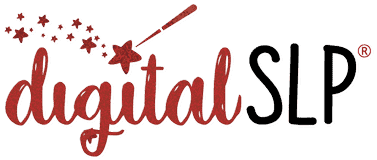
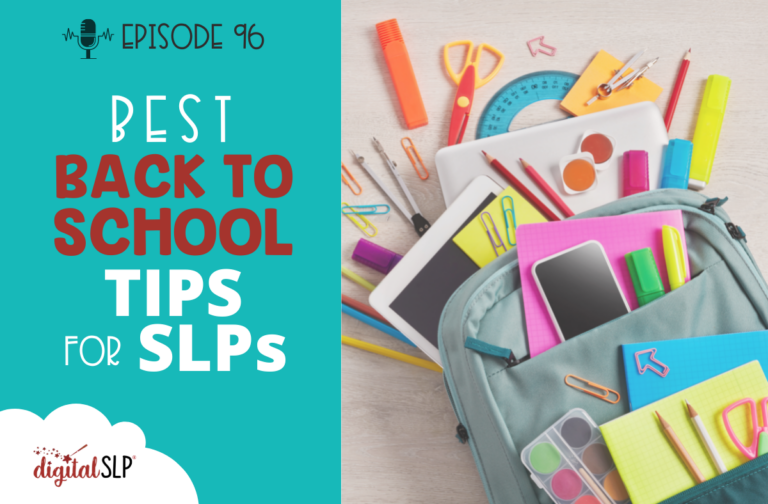
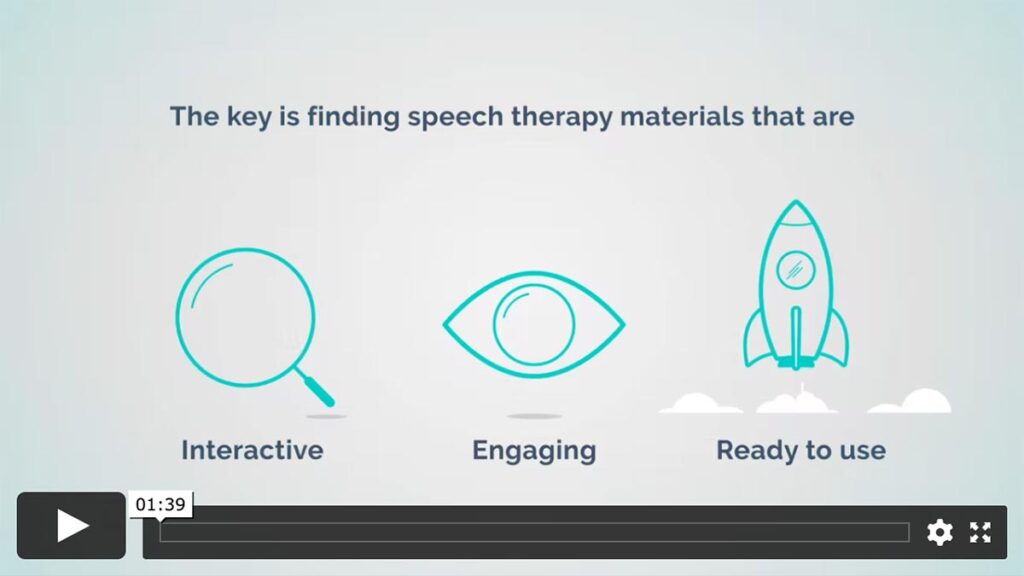
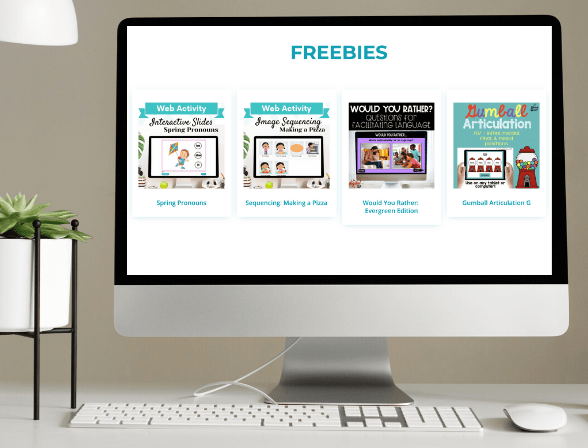

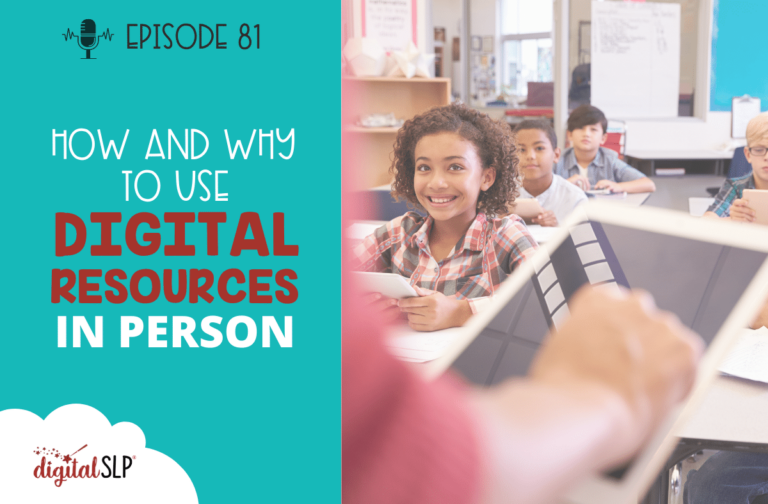
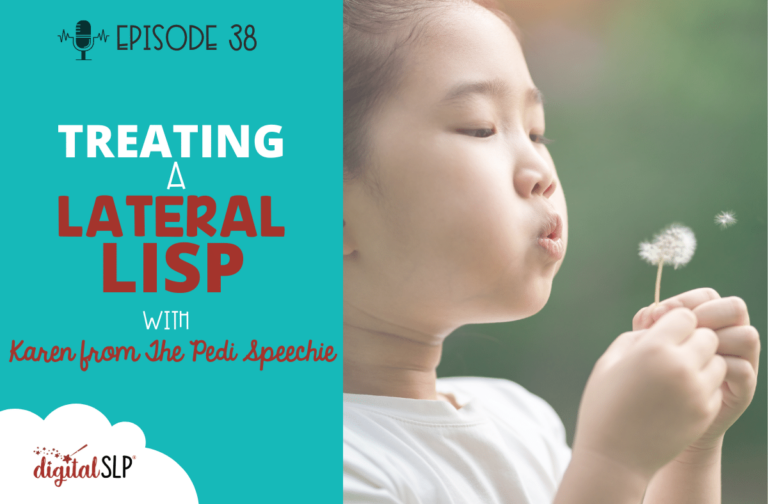

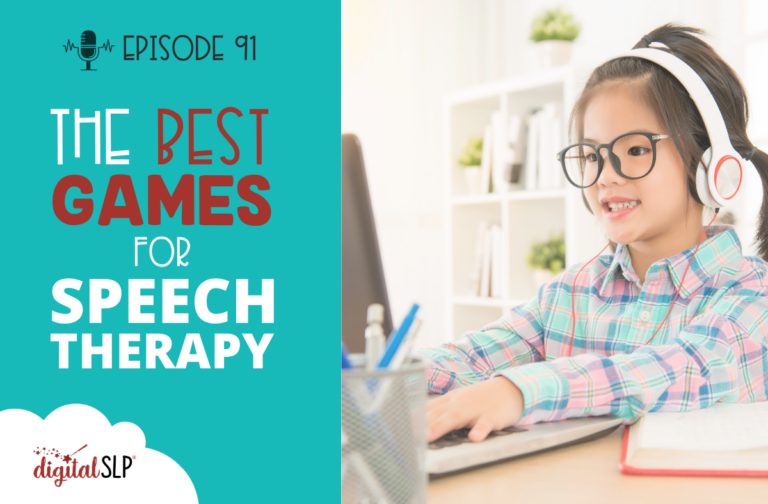
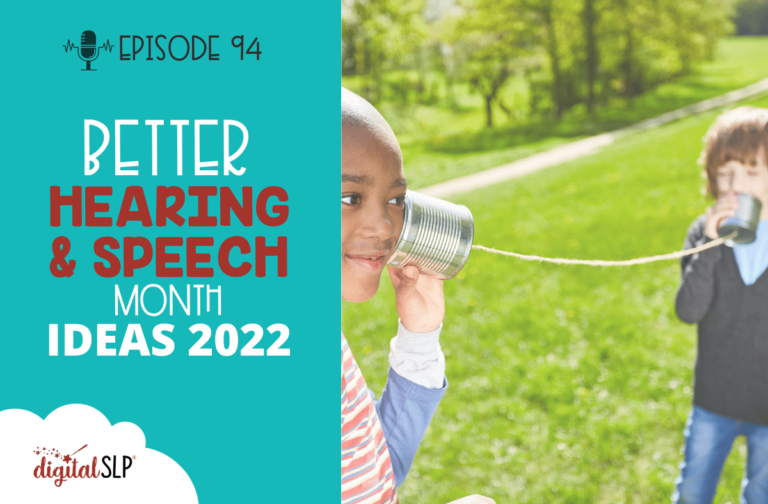


Recent Comments